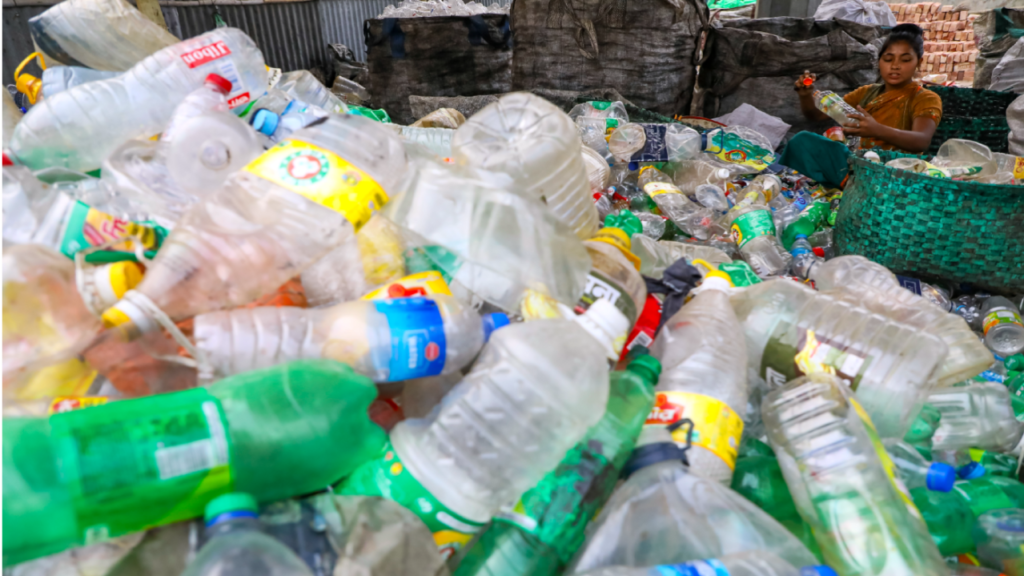Millions of healthcare workers around the world are calling on world governments to impose significant restrictions on the plastics industry.
In an open letter on Monday, representatives of 900 medical civil society organizations called for caps on plastic production, limits on toxic chemicals, and full transparency about the ingredients contained in plastics.
The letter was sent to national teams concluding the United Nations Environment Programme's fourth round of plastics negotiations in Ottawa, Canada, where the question of whether plastic pollution can be reduced without cutting plastic production is being discussed. Opinions among the delegates are divided on this issue.
Health Care Without Harm's open letter states: “Plastics pose an ongoing crisis to human and planetary health, and unless global action is taken, the planned dramatic decline in plastic production will continue. The situation will inevitably worsen with an increase in
Six million healthcare workers around the world have signed this letter, stating that plastics pose a serious threat to human health through direct poisoning and, due to the plastics industry's dependence on fossil fuels, their role in warming the climate. It warns that it is causing
“There are health impacts at each stage of the plastic life cycle,” the authors point out.
“Plastics used in healthcare contain thousands of plastics that can leach from products and waste and remain in the environment, threatening patients, communities, workers (including waste workers), and ecosystems. Requires dangerous additives (including carcinogens, neurotoxins, and endocrine disruptors).
They argue that these effects are of particular concern for “vulnerable patients”, including children, fetuses and newborns, and add significant costs to global health systems.
They also argue that many of these hazards are exacerbated by being hidden, stating that “the lack of complete product ingredient information undermines efforts to reuse, recycle, and transition to safer alternatives.” It's hindering me,” he wrote.
The letter is important because medical plastics is a key area that industry advocates point to when opposing production limits.
An anonymous campaign called 'These Plastics' seeks to counter such cap ideas by arguing that plastics are 'essential' to protect human health.
“Plastic has made healthcare safer and more accessible,” the website says. “By reducing spoilage and preserving nutritional value, plastics also support food security and contribute to maintaining human health and well-being.”
Industry campaigns also argue that despite their reliance on fossil fuels, plastics are actually more climate-friendly than alternative materials because they are lighter and require less fuel to transport.
Copyright 2024 Nexstar Media Inc. All rights reserved. This material may not be published, broadcast, rewritten, or redistributed.


